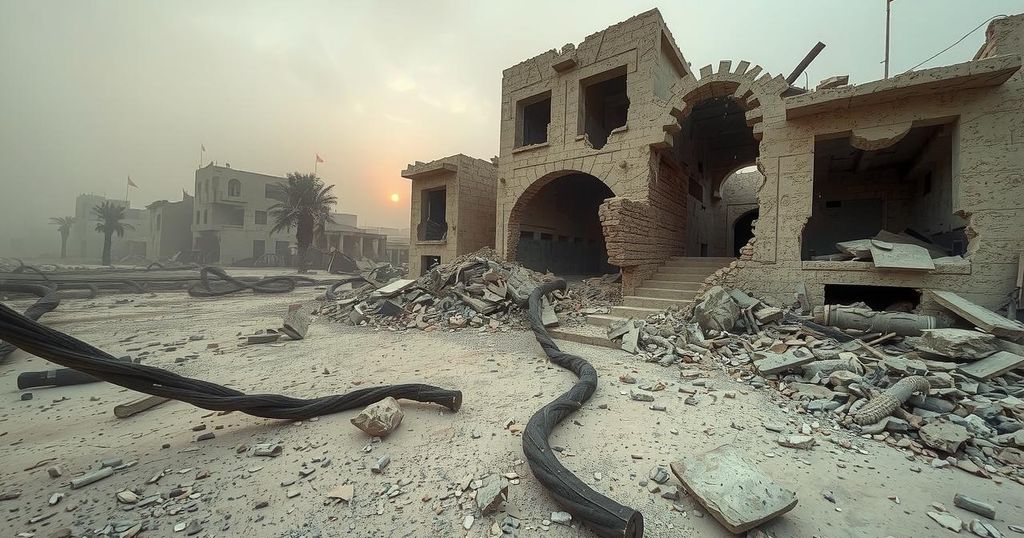The Quad, comprising France, Germany, the UK, and the US, addressed the IAEA Board in March 2025, emphasizing Iran’s non-compliance with its NPT Safeguards Agreement. They criticized Iran’s failure to clarify nuclear activities at undeclared sites and reiterated the need for full cooperation. The Quad expressed that continued delays could lead to findings of non-compliance, stressing that Iran’s transparency is crucial for global nuclear safety.
In March 2025, the Quad, consisting of France, Germany, the United Kingdom, and the United States, addressed the International Atomic Energy Agency (IAEA) Board regarding Iran’s compliance with its Nuclear Non-Proliferation Treaty (NPT) Safeguards Agreement. The Quad expressed appreciation for the IAEA’s ongoing engagement with Iran to clarify issues related to its nuclear program and acknowledged the Director General’s report, which is pivotal for understanding Iran’s nuclear intentions.
The Quad expressed regret over Iran’s prolonged refusal to clarify the presence of nuclear material at several undeclared sites over the past five years. Despite concerted efforts by the IAEA, Iran has not fulfilled its legal obligations under the Safeguards Agreement, leaving the Agency unable to confirm whether Iran’s nuclear activities are strictly peaceful. The Quad emphasized that undermining safeguards obligations cannot go unchallenged, warning Iran of potential findings of non-compliance should it fail to cooperate.
The IAEA’s findings indicate serious non-compliance by Iran, particularly regarding undisclosed nuclear activities at sites such as Lavisan-Shian and Marivan. The Quad criticized Iran’s lack of progress in providing information necessary to resolve these discrepancies. Persistent denial and challenge to technical assessments cast doubt on Iran’s transparency and commitment to fulfilling its international obligations. The Quad reaffirmed its support for the IAEA’s expert work in addressing these critical concerns.
Highlighting Iran’s continued refusal to share design information for new nuclear facilities, which violates its obligations, the Quad expressed alarm at Iran’s history of operating covert facilities. Iran’s refusal to accept additional inspectors has further hampered the IAEA’s verification processes. These actions, particularly in light of inflammatory statements from Iranian officials regarding nuclear capabilities, exacerbate concerns about the program’s intentions.
While commending the IAEA’s efforts to engage Iran, the Quad insists that concrete progress is necessary. Historical delays have left the IAEA with a need for clarity regarding Iran’s nuclear program and compliance status. The Quad reiterated calls for Iran to resume full cooperation urgently and fulfill its Safeguards Agreement commitments.
The Quad noted the IAEA’s directive to compile a comprehensive assessment regarding the potential presence of undeclared nuclear materials, which will aid in evaluating Iran’s compliance. The Quad expressed disappointment at Iran’s stagnation in progress following the resolution’s passing four months prior. Emphasizing the urgency of this assessment, they called for timely delivery to inform the Board’s decisions.
The Quad conveyed that its patience is finite, indicating readiness to consider non-compliance findings if substantial progress is not observed. They underscored the importance of the IAEA’s safeguards investigations to global security and non-proliferation, highlighting that Iran’s continued non-cooperation and escalation must have consequences. The Quad thanked the IAEA for its persistent efforts and called for transparency regarding the report’s findings, signaling a strong commitment to uphold international safety standards.
In conclusion, the March 2025 statement by the Quad to the IAEA Board highlights severe concerns regarding Iran’s adherence to its nuclear commitments. The Quad’s call for urgent cooperation underscores the importance of transparency in Iran’s nuclear activities. Failure to comply may compel the Board to declare Iran in non-compliance, reinforcing the necessity for timely resolution of outstanding issues surrounding Iran’s nuclear program. The urgency of these discussions is critical for maintaining international security and the integrity of the global non-proliferation framework.
Original Source: www.gov.uk




